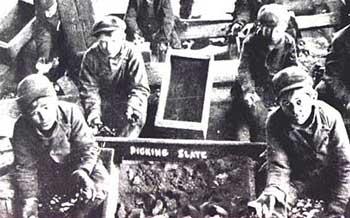Reparation payments to the descendants of enslaved persons do not poll well. In a 2019 Gallup poll, 67% of respondents opposed the idea while only 29% were in support.
Studies tracking “public opinion” are highly misleading, unless they break down the data by race and ethnicity.
A 2020 Pew study found that three-quarters of Black respondents believe too little attention is paid to issues of racial justice; half of whites, by contrast, believe that too much attention is given to these issues. In 2019, the Gallup study found, 73% of Black respondents supported cash payments to the descendants of the enslaved, compared to just 16% of whites.
While a tiny minority of white Americans voice are vocal champions of racial justice, most are not. I have previously argued that the mere mention of reparation payments “messes” with the social boundaries, family pride, religion, politics, and patriotic sensibility of white people. But there is something else in play.
The manufactured outrage over critical race theory (CRT) reveals how little most white Americans know about their nation’s racial history. Ignorance this profound requires an explanation. The arguments made against reparations are without foundation, yet they have been marvelously successful. Why?
Imagine a man (let’s call him Ralph), who spent the years between 1973 and 1987 kidnapping children between the ages of eight and twelve. The victims were dragged off to Ralph’s private underground coal mine in the dead of night. Once in Ralph’s power, the unfortunate children were forced to work sixteen-hour shifts with no day off. They were fed just enough to keep them alive. If they perished, their emaciated bodies were left where they fell. If you found yourself in Ralph’s clutches, you were doomed. No one ever escaped.

I suspect a villain like Ralph would have many more sins to account for, but we’ll leave it at that.
As time passed, mothers and fathers began to wonder why so many children were disappearing. As security measures multiplied, Ralph realized that his run of good fortune was over. The kidnapping game had become too risky. So, he worked his remaining minions to death, cashed out, and retired to a luxurious condo in Miami.
In 2017, Ralph was awakened by a harsh rapping on his front door. FBI agents had a warrant for his arrest. Gradually the truth emerged. One of the last children Ralph left for dead thirty years earlier had crawled his way to safety. He wasn’t sure who had kidnapped him and pressed him into service in the mines, but he was determined to find out. As soon as the boy (we’ll call him Tim), had recovered from his ordeal, he embarked on a lifelong quest to uncover the truth.
Thirty years of painstaking research led Tim to Ralph’s condo. Impressed with Tim’s mass of evidence, the FBI filed for a warrant and made the arrest.
By now, Ralph was an old man with a multitude of chronic ailments. During a long, involved trial, his well-compensated attorneys asserted that Tim had invented most of his sordid story.
Apart from Tim, the prosecution had no living witnesses, but hundreds of bone fragments discovered in the long-abandoned coal mine were tested and linked to hundreds of missing girls and boys.
Closing arguments were presented and the jury retired to consider its verdict. There was a lot of sympathy in the room for Ralph. He was just a sick old man. He looked so pathetic and alone. He was a man with a misspent youth, to be sure, but he hadn’t kidnapped, enslaved or murdered anyone for decades. By all appearances, he was a changed man.
Besides (and this is where it gets really strange), two of the people in the jury room had engaged in similar activities themselves back in the day. Others told of parents, uncles and grandparents who had run their own death camps in clandestine coal mines once upon a time. Ralph’s “crimes” it turned out, were surprisingly common. No one wanted to working kidnapped children to death in the bowels of the earth. But, as one juror argued, it was the only way people like Ralph could make a living.
When Ralph was acquitted, a jubilant crowd celebrated his release on the courthouse steps.
I know, I know, this sounds like a ridiculous story. People like Ralph may exist, but they could never get away with a crime of this magnitude. Not in America. And even if a rogue like Ralph existed, an incensed public would be baying for his blood.
But what if an entire society was erected upon a Ralph-like crime? What if that crime persisted for centuries? And what if the people asked to pass judgment on these crimes were the descendants of the perpetrators?
For those who know their history, the case for reparations is powerful, even obvious. But when the question is put to a vote, it is rejected out of hand.
If it makes you feel any better, support for cash reparations doubled between 2002 and 2019. At least we’re moving in the right direction. And that’s why the anti-CRT crowd has grown so frantic. Their representation is slowly, inexorably, declining. Public support for their brand of bigotry is eroding. If they don’t turn things around, now, it will be too late. Their fury is a sign of impending death. That’s what makes it so dangerous.
